August 13, 2019
by Patricia Tomasi
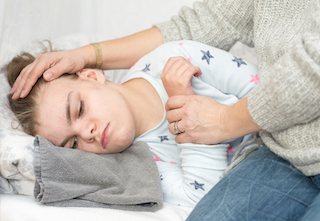
Over 70 per cent of cases of traumatic brain injuries (TBIs) in children of all ages involved products regulated by the U.S. Consumer Products Safety Commission. Ten per cent of TBIs in children aged 0-4 were caused by bunk beds as well as another 10 per cent by stairs, and 10 per cent by floors. In children aged 5-9, the leading causes of TBI are floors and bike accidents. Football, basketball, soccer and bike accidents were the leading causes of TBI in children and adolescents aged 10-14.
[More]
August 6, 2019
by Patricia Tomasi
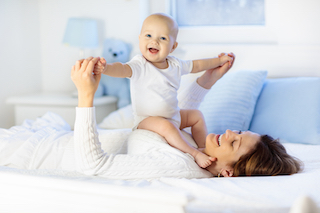
Why would it matter if infants displayed empathy? “Empathy is defined as the ability to understand the emotion of others, and share in those emotions, while maintaining a self-other distinction,” Florina Uzefovsky, of the Ben-Gurion University of the Negev, told us. “As can be understood from the definition, empathy is basic and central in all social communication. This ability allows us to interact with others, to better understand their motives and actions, and to engage in meaningful social relationships.”
[More]
June 18, 2019
by Patricia Tomasi

Attention Deficit Hyperactivity Disorder, or ADHD, as it's commonly known, is on the rise. But why? Is it just that we’re becoming more aware and accepting of the disorder or is something else causing the increase? “It was already known that children with ADHD have higher omega-6 to omega-3 ratios,” researcher Monica Lopez told us, “so we wanted to test whether these higher omega-6 to omega-3 ratios were involved in the origin of the symptoms.”
[More]
June 16, 2019
by Elizabeth Pratt
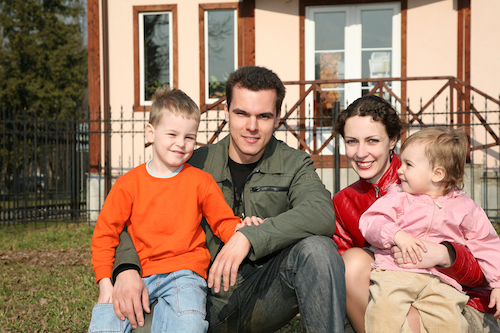
Researchers have found the kind of time fathers spend with their children influences the strength of their relationship in the early years.
[More]
Recently there was an item in the news about a young boy who was with his drug-addicted mother and her boyfriend on a bus. They were in Camden, New Jersey. When they reached their stop the boy tried, unsuccessfully, to arouse the two adults. The man was unable to stand. The mother was unresponsive and appeared to snort something off of her wrist. One of the astonished passengers filmed the event and informed the child welfare authorities that this child was at risk.
[More]
May 28, 2019
by Patricia Tomasi
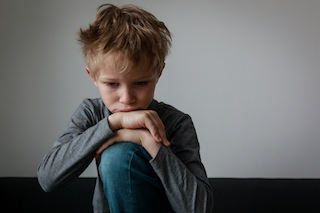
A new study from the University of East Anglia, published in the Journal of Psychology and Psychiatry looked at how common post-traumatic stress disorder (PTSD) is in children and adolescents in the initial weeks and months following a trauma. “Why do some young people show no clinically significant PTSD symptoms early on,” study lead researcher, Dr. Richard Meiser-Stedman told us, “while others show a significant reaction?”
[More]
May 21, 2019
by Patricia Tomasi
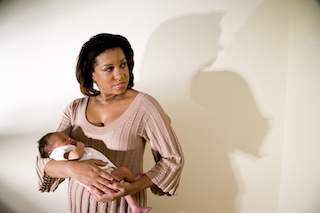
A new U.S. online survey conducted between April 4th and 8th, 2019, by the Harris Poll on behalf of MediaSource has found that 40 per cent of over 1200 women surveyed felt overwhelmed, depressed, or anxious following labor and that more than 25 per cent did not have a health care plan in place to cope with the "fourth trimester".
[More]
May 14, 2019
by Kimberly Lucey

Obese children may be more likely to develop anxiety or depression than their peers, according to the results of studies done in Sweden, and the United Kingdom. Researchers in Sweden tracked more than 12,000 children being treated for obesity.
[More]
April 30, 2019
by Kimberly Lucey

If your preschooler is already hooked to their iPad or television, scientists say it might be time to start thinking about safe screen time practices. A new study shows more time in front of the tube could be linked to significant behavioral problems.
[More]
April 30, 2019
by Patricia Tomasi

A new study published in the JAMA Psychiatry examined whether maternal use of cannabis during pregnancy is associated with psychosis liability in offspring. “We expected that cannabis use would be associated with increased psychosis proneness in offspring,” study author Ryan Bogdan told us. “However, we also expected that some of this relationship might be accounted for by other potentially related factors (e.g., other substance use during pregnancy, maternal education, family history of psychopathology, maternal prenatal vitamin use, child substance use, etc.).”
[More]